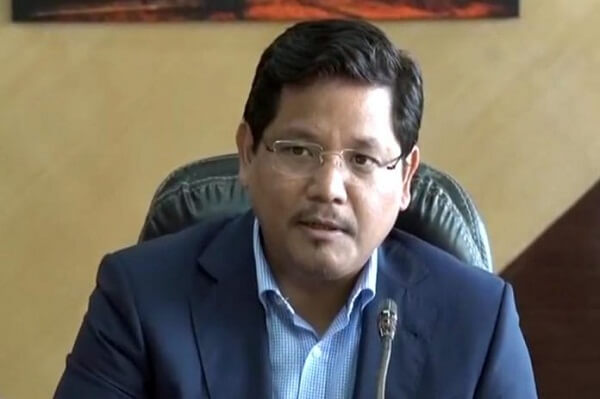Conrad K Sangma,Chief Minister,Meghalaya
Speaking on importance of collaboration and cooperation among the northeastern states in addressing climate-related issues, Meghalaya Chief Minister Conrad K Sangma said the region’s unique geography makes it vulnerable to extreme weather events, which can have far-reaching consequences
Shillong: Meghalaya Chief Minister Conrad K Sangma on Thursday said that climate change is not just an environmental challenge but a fundamental issue of justice and equity.
Speaking at the Climate Investments Coalition for the Global South in New Delhi, he said that those who have contributed the least to climate change are suffering the most, and it is essential to address this disparity, a statement issued here by the state government said.
He said that Meghalaya has taken climate concerns seriously, and has charted out intervention for mitigation.
The CM informed the gathering on the traditional conservation knowledge and practices which are being adopted to address the global crisis.
“Our communities are deeply rooted in nature, their knowledge about conservation and protection of natural resources is being widely promoted and adopted for sustainable solutions,” he said.
Talking about erratic monsoons affecting lives, he spoke on the unpredictable rainfall patterns and extreme weather which have impacted agriculture and livelihood for millions globally, with Meghalaya not being an exception.
“Climate change threatens economic stability and future growth, making it essential to realign global climate platforms with the realities of the Global South,” he said, while reaffirming the government’s commitment to sustainability.
He said that Meghalaya is leading in forest conservation and community-led environmental initiatives.
“We are implementing programmes such as Green Meghalaya to encourage community partnership in conservation of forest and protection of catchment areas and rejuvenation of water sources,” he said, while underscoring the importance of such policies.
He also informed the gathering on the investments being made in renewable energy, sustainable agriculture, and climate-resilient infrastructure.
Speaking on importance of collaboration and cooperation among the northeastern states in addressing climate-related issues, he said the region’s unique geography makes it vulnerable to extreme weather events, which can have far-reaching consequences.
“For instance, a severe weather event in Arunachal Pradesh can affect Assam, and rising water levels in the Brahmaputra River can cause flooding not only in Assam but also in western parts of Meghalaya,” he said, adding that to effectively tackle these challenges, the northeastern states have to work together, sharing their expertise and resources to develop strategies for mitigating the impacts of climate change.
He also spoke on the potential benefits of forging partnerships with countries in South and Southeast Asia, particularly through the Bay of Bengal Initiative for Multi-Sectoral Technical and Economic Cooperation (BIMSTEC).
He informed the gathering on the bud rot disease that has affected areca nut plantations in Garo Hills and Western Khasi Hills region.
“This disease has not only affected the local economy but has sent alarm bells ringing on the need for sustainable agricultural practices and climate-resilient farming systems,” he said.
The Climate Investments Coalition for the Global South (CICS) organised by the state government in collaboration with National Law University, Meghalaya is aimed at providing a platform to drive discussions on mobilising climate finance, accelerating green investments, and strengthening South-South cooperation.
The programme also showcased Meghalaya’s model of sustainable development.

